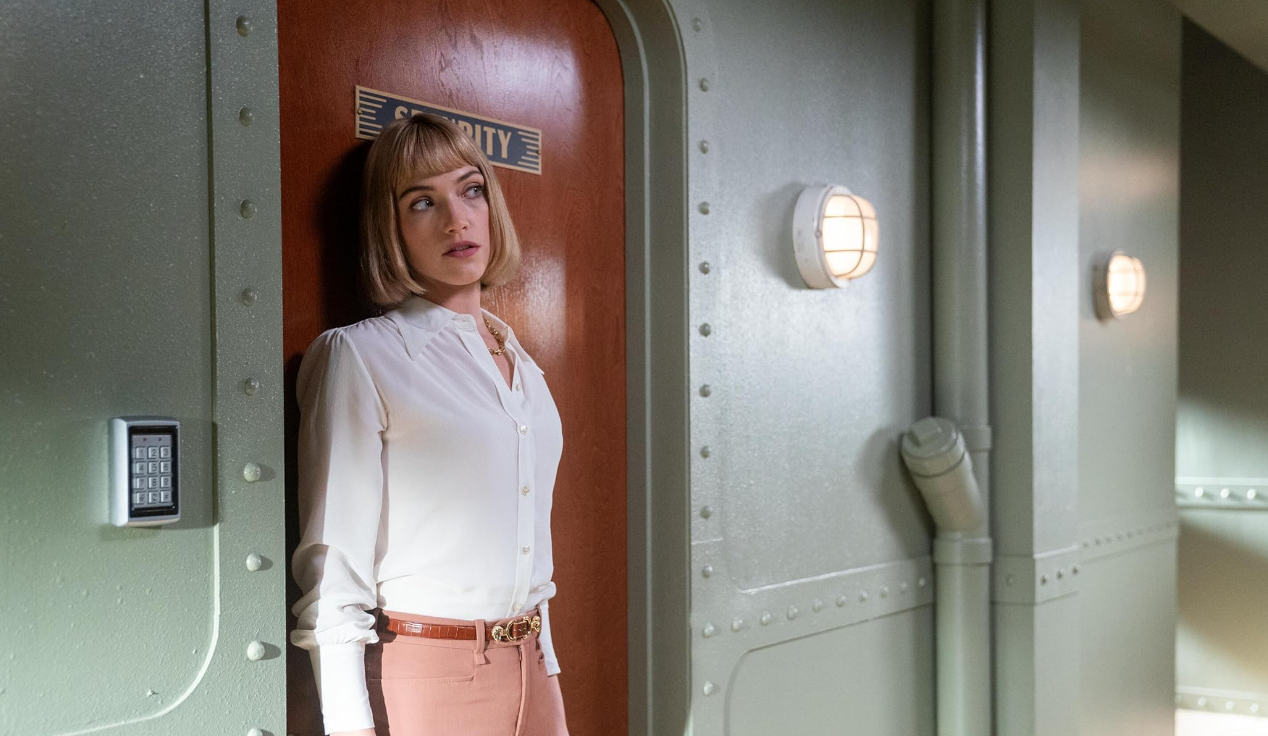Movies
[TIFF Review] In ‘Zalava’, a Demonic Possession Leads to Mass Hysteria and Paranoia

Superstition and paranoia abound in Iranian writer-director Arsalan Amiri’s film, Zalava. Set in the titular village in the northwestern mountains of Iran in 1978, the film chronicles one long day and night as the village descends into panic, fear and mass hysteria that a demon is attacking their home.
What’s fascinating about the film, which is co-written by Ida Panahandeh and Tahmineh Bahram, is how it skirts expectations. Reading the logline, Zalava seems like a straightforward horror film about a Sergeant (Navid Pourfaraj) who finds himself caught in the middle of a possession/exorcism story. In reality, the narrative adopts an extremely unconventional, almost low-key take on what constitutes a demon. There is no bombastic exorcism sequence or CGI entity; this is an inherently human-driven story.
The film opens with a short inciting incident as Sergeant Masoud and his gendarmerie confiscate all of the guns in the village. The daughter of one of the villagers has been “possessed” by a demon, and, as is custom, bloodletting must occur (via gunshot to the leg) to let it out. Masoud doesn’t believe in this tradition, but after the girl accidentally falls to her death, he is suspended and ordered to return all of the guns. He complies after he and impressionable young soldier Younes (Baset Rezaei) tamper with them, but then, on his last day as Sergeant, another possession occurs.
The first act of the film details the new demonic possession as Masoud butts heads with Amardan (Pouria Rahimi Sam), the local exorcist that the villagers trust implicitly. Masoud is pensive and headstrong and he distrusts Amardan, accusing him of being a swindler who preys on the villagers’ outdated beliefs. Even though Samoud’s love interest, visiting doctor Maliheh (Hoda Zeinolabedin) warns him not to interfere, the Sergeant can’t resist arresting Amardan after the exorcist is complete (off-screen – because Amiri delights in thwarting convention).

As the action shifts to the military outpost for the second act, Zalava executes its most tense sequence. The “demon” Amardan has supposedly trapped is kept in a glass jar, which, to the naked eye, appears empty. The Sergeant has been warned that the jar cannot be opened under any circumstances, which naturally only serves to tempt his curiosity. Throw in a playful kitten and this middle section is an exercise in mounting tension as the jar is repeatedly nearly opened.
The action moves back to Zalava for the last act when the exorcist escapes, prompting Masoud and Younes to travel back up the switchback mountain roads. Amiri, Panahandeh and Bahram expertly recreate the first act’s hysteria, only this time Masoud and Malileh are caught in the middle of the conflict. While the film could be seen as a condemnation of the villagers’ outdated superstitious beliefs, Zalava also subtly denounces Masoud’s ill-advised and uninformed tendency to barge into situations that he does not fully comprehend.
The secluded setting plays an important role in the conflict as Zalava is a town of narrow streets built almost vertically into the side of the mountain. It is isolated, cut off from the world, and populated by families who have lived there for generations whose way of life is tied to reputation and tradition. This insularity feeds into their method of preventing and resolving demonic possession; it also contributes to a unique pressure-cooker situation where public good outweighs individual rights and “infected” people are liable to be shot, maimed, or even killed based on accusation and hearsay.
Everything builds to a climax unlike any other “demonic possession” film in recent memory. While this final confrontation does go on for a little too long and slips into unnecessary repetition, Amiri infuses moments of comedy, violence and tragedy together in a compelling and satisfactory way.
For all these reasons, Zalava is a fascinating look at mass hysteria, paranoia and tradition that feels both unexpected and unique.

Movies
‘Drop’ – Violett Beane Joins the Cast of Christopher Landon’s New Thriller

Christopher Landon (Happy Death Day, Freaky) is staying busy here in 2024, directing not only the werewolf movie Big Bad but also an upcoming thriller titled Drop.
The project for Blumhouse and Platinum Dunes is being described as a “fast-paced thriller,” and Deadline reports today that Violett Beane (Truth or Dare) has joined the cast.
Newcomer Jacob Robinson has also signed on to star in the mysterious thriller. Previously announced, Meghann Fahy (“White Lotus”) will be leading the cast.
Landon recently teased on Twitter, “This is my love letter to DePalma.”
Jillian Jacobs and Chris Roach wrote the script.
Michael Bay, Jason Blum, Brad Fuller and Cameron Fuller — “who brought the script in to Platinum Dunes” — are producing the upcoming Drop. Sam Lerner is an executive producer.
THR notes, “The film is a Platinum Dunes and Blumhouse production for Universal.”














You must be logged in to post a comment.